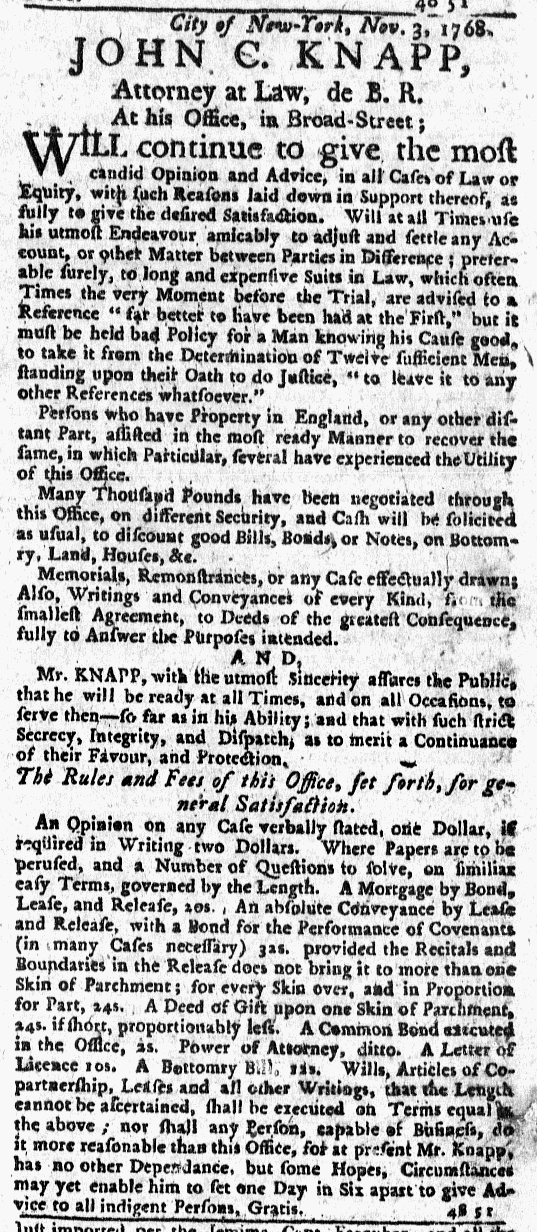What was advertised in a colonial American newspaper 250 years ago today?

“Circumstances may yet enable him to set one Day in Six apart to give Advice to indigent Persons, Gratis.”
John Coghill Knapp, “Attorney at Law,” was a familiar figure to colonists who read the New York newspapers in the 1760s. He frequently placed lengthy, chatty advertisements offering a variety of legal services. In November 1768 he inserted a new advertisement, one that extended half a column, in the New-York Journal. He proclaimed that he “WILL continue to give the most candid Opinion and Advice, in all Cases of Law or Equity, with such Reasons laid down in Support thereof, as fully to give the desired Satisfaction.” He drew up “Memorials, Remonstrances, or any Case” as well as “Writings and Conveyances of every Kind, from the smallest Agreement, to Deeds of the greatest Consequence.” Although he did not state it explicitly in this new advertisement, earlier notices made clear that “Conveyances of every Kind” included the buying and selling of enslaved men, women, and children. As he had done in previous advertisements, he promised “strict Secrecy, Integrity, and Dispatch” in serving all his clients no matter what kind of work they brought to his office.
In addition to those attributes particularly valued in an attorney, Knapp concluded by declaring that he had “some Hopes, Circumstances may yet enable him to set one Day in Six apart to give Advice to indigent Persons, Gratis.” He aspired to some day be in a position to provide free legal services to those who could not otherwise afford his fees, but he did not have the means to do so at the moment. The lawyer cleverly leveraged his best intentions, which testified to his character, to attract clients who could pay. He did so while simultaneously promoting his industriousness, indicating that he pursued his profession six days of every week. Just as he set the seventh day aside for worship, he desired to set the sixth day aside for altruism. That was only possible, however, if he earned enough throughout the rest of the week to support himself. Knapp suggested that he wanted to provide aid “to all indigent Persons,” but called on prospective clients to give him the opportunity to do so. By engaging his services, they indirectly contributed to a charitable enterprise. Knapp attempted to distinguish himself from other attorneys by deploying philanthropy as a marketing strategy.
